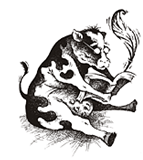
Like many writers, I’ve submitted short stories to contests, hoping that my work would win and fearing that my entry would be far outclassed. But I’ve not entered many contests, mostly because I figured if I had to pay someone to read my work, I’d do better investing in an editorial reader to give me meaningful feedback.
I have submitted work to contests with no entry fee – and I’ve won prizes: both money and recognition, but neither fortune nor fame. In 2005, I won a local writing contest; since then, I’ve frequently been asked to judge it. This has given me a new perspective on contests and how winners are picked.
At first, I was one of five judges. We all read all the entries, then met to decide the winners. Some years, the winning entrance was obvious – not always because it was so good, but because the competition was weak. Other years were more contentious. Several stories were prize-worthy, and we each argued for the one we liked best. The final result was a compromise amongst the judges, and not necessarily about the work.

www.writeaction.org
This year, I’m judging the prose entries myself. The responsibility is large, and I’m taking my time. Happily, this year’s entries are the best I’ve ever read and a big change from the last time I served, when the writing was poor and the presentation worse. Manuscript Matters. Submitting a story to a contest or agent or editor is like sending it on a job interview, and it should go out looking its best. This year’s submissions all arrived as clean copy in black ink on white paper in twelve-point type. They’re easy to read, and I’ve been able to get lost in the stories without having to fight my way through fancy fonts, blue and/or bold ink, and other typographical devices that detract from the words.
The words are good, the stories touching, entertaining, imaginative, and varied. I’ve enjoyed reading them, and I’ve read them all twice. I’ve read my favorites several times more.
These submissions are so good, that picking a winner is hard. So I reread them, arrange them in my order of preference and let them rest. I’ve been doing this every few days for over two weeks, and the winners are starting to emerge. I keep placing the same story on top of the stack; that’s the one I’ll call First. Another week of reading and rearranging has helped me settle which stories will come in Second and Third. Of the other four, I’ll recommend one for Honorable Mention.
I’m taking my time because judging a contest is entirely subjective, especially with stories that are both well-told and well-written. Rereading has allowed me to attend to the finer elements of craft: voice, point-of-view, use of language, development of suspense, narrative arc, metaphor, and meaning.
But that’s me. Another judge might choose differently.
Based on my experience judging, here’s my advice for entering contests:
- A writer can control craft, so submitting absolutely excellent work is key – but still no guarantee. How your work fares depends both on the quality of the other entries and on the subjectivity of the judge. Neither are elements a writer can control.
- Follow the contest guidelines precisely; this is an element a writer can control. A smart writer does this with all submissions, not just contests. Everything else is a crapshoot.
- Consider submitting to journals during their open reading periods instead. Most contests cost money, and most open-reading periods accept submissions for free.
- It bears repeating: send only your best work.
Good luck!

The 2005 prize-winning story Marlboro Music became a chapter in Deborah Lee Luskin’s award-winning novel, Into The Wilderness. Learn more at www.deborahleeluskin.com
good luck for judging.
Thanks, this is helpful. I have looked at many competitions, but never entered. Judging others work must be difficult, but judging your own is terrifying! Good luck.
That was really useful, thank you. I started entering competitions last year, more for the exercise of writing than anything else. Surprisingly, quite early on, I took second place in what was supposedly an “international competition”. The prize money may have been reasonably modest but the satisfaction was immeasurable.
Of course it spurred greater efforts on my part but unfortunately only to be met with more patchy results. Aside from having another piece published, I am, at best frequently “long listed”, and sometimes its a very long list.
As I’m relatively new to writing creatively I’ve found the discipline in writing for competitions really helpful. A slight taste of success has also made it compelling. I can’t believe it has taken me so long to give it a go.
Thanks again for providing some insights as to what it is like to be on the receiving end.
Reblogged this on J. Rae Moore and commented:
Thank you, Deborah Lee Luskin for a behind the scenes look at the process of judging of writing contests. This is a well written piece and I could not help but share it.
Thanks for the advice. I’ve entered a few contests. It’s good to remember that there are parts we can’t control, but more importantly parts we can! Good luck with the judging.
Thank you; this was very helpful from a submission perspective. It’s also the first time I’ve read what it’s like to judge a contest, and i enjoyed reading your experience. I have been reluctant to submit because of cost but Open Read sounds like a good alternative. I appreciate all this information!
Good advice is always welcome
Thank you so much for these valuable nuggets of information on how to submit work and stand a chance of seeing your work stand out. Greatly appreciated!
One of the best articles from a judge on the inside. Very informative and confirmed what I have believed. Reblogged on Cow Pasture Chronicles. Thanks foe sharing your insights.
Reblogged this on COW PASTURE CHRONICLES and commented:
Deborah Luskin, from Live to Write- Write to Live, gives us a brilliant look at contests and judging from the inside out. She confirmed what I believed along, while submitting an excellent manuscript helps get you noticed, but who wins is subjective. Strive for excellence and a story that will move the judges.
Thanks for the advice!
You are most welcome!
Reblogged this on jean's writing and commented:
Important information for one judge.
Thanks for the boost & reblog!
Your welcome, loved the article.
Thanks for the advice! I think I am going to start blogging short stories and then modifying them to possibly enter them somewhere
Before you publish on-line, just be aware that some magazines don’t want material that’s already appeared on the web. . .
Reblogged this on BRIDGET WHELAN writer and commented:
Good advice about writing competitions from an experienced writer/judge…
Thanks for reposting. It’s like receiving an acceptance for a story!
Reblogged this on Getting Lit Fit and commented:
Thanks for the advice and the perspective. Though it should be obvious, it’s always good to be reminded that the only work you should submit is your best.
Yes, but sometimes we fall in love with our own work before it’s finished and/or sometimes we’re just too impatient to make it the best we can before we send it out the door. So the reminder is helpful. Thanks for your comment.
I shall pas this on to my members, well worth reading, it highlights a few grey areas not often seen in print thank you.
Glad you found it helpful – enough to pass on to others! Thanks.
Reblogged this on authorkdrose and commented:
Good info about contests- from a judge.
Thanks for the boost!
This is definitely interesting. I would love to submit my stories somewhere just have not figured out where yet.
Do your research to find the journals, magazines and blogs that seem like a good fit and follow the submission guidelines. You might want to read my post, Accepting Rejection in the event that your stories aren’t snapped up by the first editor who reads them.
Thanks for reading the blog. Good luck!
thank you 🙂
What are the best kinds of contests to enter? What kinds of prizes do they give? Thanks, and have a blessed day! <3
The short answer: “It depends.” What do you write? What’s your budget? What’s your purpose in submitting to contests?
Submitting your work – to contests, literary magazines, agents or publishers – requires a great deal of research to find the right match.
I often feel left out because i don’t write short fiction. As a remedy, I’ve sponsored a “novel first chapter” category in the annual contest run by the writing group I belong to, Green River Writers, based in Louisville, Kentucky (here’s a link to the contest: http://www.greenriverwriters.org/contest2.html). The category is open to non- or self-published novels. Wish I could enter my own category! There are many other categories for short fiction and poetry.
Writers’ Digest’s novel contest is for self-published novels, but I don’t want to self-publish the one I have in hand, not yet. If anyone knows of a contest for non-published novels that are out on the market, I’d love to know about it.
Thanks for the pointers!
Virginia
Thank you so much for these valuable nuggets of information on how to submit work and stand a chance of seeing your work stand out. Greatly appreciated!
Thanks for sharing this, Deb. I love that as the solo judge you are reading so closely and carefully! Lucky contestants. I’ve heard from people associated with many small journals that contest submissions often do get read far more carefully than regular submissions, so I don’t think that sending to open submissions periods is the same thing as submitting to a contest. The fee people pay to enter contests does mean there aren’t as many pieces in the ‘to read’ pile, and each piece is given its due, which doesn’t always happen with the ‘slush pile’ of regular submissions.
Joan, this is a great insight – quite different from mine, and a compelling reason for entering contests. I’m going to rethink my strategy . . .
I have only ever enter one competition which was in the past and time has moved on quickly since then as it does
I was intrigued by this completion rather than any money prize which may have been offered, more appealing to me was the change to have my finished work published which was the main prize
The subject was to be based on “wind in the willows” story to celebrate the anniversary of the author Kenneth Grahame
The work had to be original and 2,500 words in length, which at first seemed daunting, but since I already had a love for the wind in the willows story I thought of a title and my story almost wrote itself once I had begun
I my mind I could hear the voices of each character, as if they were telling me the story, and to my amazement I completed writing it up to the limit of 2,500 words far easier then I had imagined
Even though I didn’t win I was bitten by the writing bug and went on to write articles and more stories just for the pleasure of writing
So glad you found this helpful. Thanks for praise.